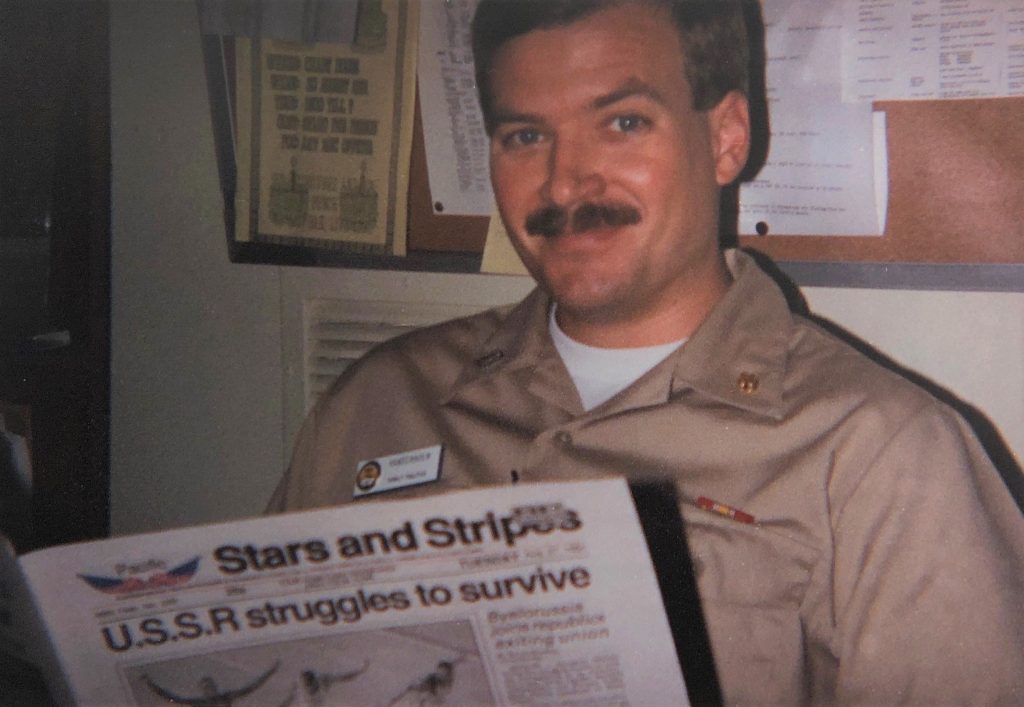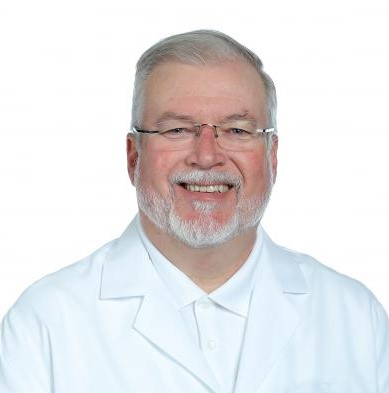Dr. John vanSchagen, interim Department Chair, served in the United States Navy Reserve from 1988-1994, was able to use the Uniformed Services Health Professions Scholarship Program to help pay for his medical education and offered him the opportunity to serve after he was done with this residency program. The following interview is from the Mercy Health News.
What did you enjoy most about serving in the military and why did you enlist? Coming from a lower-middle-class family as a first-generation college graduate, I was fortunate to be accepted into the Uniformed Services Health Professions Scholarship Program in medical school, which helped pay for my medical education. I enjoyed the camaraderie amongst my fellow medical corps officers and the regular fitness readiness that required constant work on mental and physical training. My residency experience at the Naval Hospital Jacksonville (Florida) was very broad based and developed leadership skills, independence and teamwork more than most civilian programs.
What did you get to see/experience in the military? Any places that stand out to you? My most memorable experiences were overseas. I was stationed in the Philippines during the eruption of Mount Pinatubo, which covered the entire Subic Bay Naval Station in ash. We sent medical evacuation teams into the jungle to help the local people with health needs and quickly rebuilt our naval hospital to care for our military members and their families. Later I was asked to serve in Manama, Bahrain in the Persian Gulf at the medical facility with Naval Support Activity Bahrain. I learned a lot about the culture and customs in a Muslim country that still helps me today. Dr. John vanScahgen, during his years of service in the US Navy Reserves.
Dr. John vanScahgen, during his years of service in the US Navy Reserves.
How did the military prep you for serving in healthcare? Having been assigned to leadership and authority positions so early in my medical career pushed me beyond my comfort zone and helped me understand that physicians can and should be willing and able to help in a wide variety of healthcare settings and situations. In medical practice, my military training helped me be more comfortable with office-based procedures, team leadership, and teaching. It also promoted preparedness for emergencies, calmness in chaotic situations, and the ability to troubleshoot and find solutions where none seemed available.
What does Veterans Day mean to you? I am by nature a very patriotic individual. I am often moved to tears by exhibitions of patriotism like hearing someone sing the national anthem, playing “taps”, or by a military fly-over. So Veterans Day means to me that our nation doesn’t forget or devalue its military veterans who have sacrificed for their country, and that is very important to me.
Why is it important to celebrate and honor veterans? I did not experience any combat or real hardship during my time in the Naval Reserve, and I was fortunate to be a medical officer where I could support our front-line troops. But my experiences with real heroes, enlisted career individuals whose professionalism, bravery, sacrifice and honor were so exceptional and selfless, made it clear that they should be celebrated and supported by those who benefited from their service.
